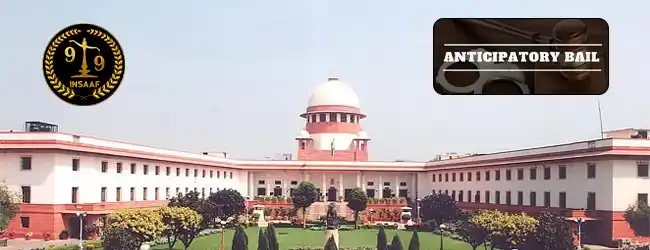2023-Mar-27

IN THE SUPREME COURT OF INDIA
CRIMINAL APPELLATE JURISDICTION
CRIMINAL APPEAL NO .205/2023 [@ SLP [CRL]. NO.8501/2022
TALAT SANVI Appellant(s)
VERSUS
STATE OF JHARKHAND & ANR. Respondent(s)
J U D G M E N T
SANJAY KISHAN KAUL, J.
Leave granted.
1. The issue raised in this appeal is that whether interim victim compensation in proceedings for anticipatory bail can be imposed as a condition for the same.
2. We do believe that the impugned order suffers from an infraction of law as the question of interim victim compensation cannot form part of the bail jurisprudence.
3. This issue already stands clarified by the pronouncements of this Court inter alia in Sahab alam @ Guddu v. The State of Jharkhand & Anr. -Criminal Appeal No.1318/2022, dated 24.08.2022 and Udho Thakur and Anr. ETC. v. The State of Jharkhand & Anr. - Criminal Appeal Nos.1703-1704 of 2022 dated 29.09.2022.
4. In Sahab Alam case (supra) we had dealt with the orders passed by the learned Judge in various matters granting bail on condition of depositing substantive sums of money without consideration of the requirements of bail dependent on the nature of offences and thus, it was observed that bail cannot per se be granted if a person can afford to deposit the money or has the capacity to pay.
5. All the impugned orders were set aside and the matter was remitted back.
6. In Udho Thakur (supra) the aspect of use of expression “victim compensation” was found to be inappropriate as pre-arrest bail proceedings are not money recovery proceedings.
7. The matter in this case is one step further as it is not a payment of money/deposit of money as a condition of grant of anticipatory bail but the direction is to pay interim victim compensation in the proceedings for anticipatory bail.
8. Looking back on the aspect of victim compensation we may note that in 1960s the ‘victimology’ movement made way for monetary compensations offered an incentive to governments by linking such compensation to victims’ cooperation in the pursuit of criminal prosecutions. Canada and several states within the United States began providing victim compensation and thereby encouraged participation in criminal prosecutions. The early 80s witnessed the pioneers of victimology and victim justice taking predominant initiatives of reforming the criminal justice system on behalf of the victims of crime. The UN Declaration on Basic Principles of Justice for Victims and Abuse of Power was unanimously adopted by the General Assembly in 1985 (Groenhuijsen, 2014). The Declaration made way for specific rights and entitlements of victims of crime, including the right to compensation.
9. Section 357 of the Code of Criminal Procedure provides for order to pay compensation when a court imposes a sentence of fine or a sentence (including a sentence of death) of which fine forms a part in the circumstances enumerated therein. Sub-section (2) imposes a limitation that when fine is imposed in a case which is subject to appeal no such payment shall be made before the period allowed for presenting the appeal has elapsed, or if an appeal is presented, before the decision of the appeal. Under sub-section (3) it is by way of compensation for the person who has suffered any loss or injury by reason of the act for which the accused person has been so sentenced. Sub-section (4) also provides for the appellate court or the High Court or Court of Sessions to direct payment of compensation when exercising its power of revisions.
10. We have set forth this to appreciate that victim compensation is simultaneous with the final view taken in respect of the alleged offence, i.e., whether it was so committed or not and, thus, there is no question of any imposition pre-finality of the matter pre-trial.
11. In a recent judgment of this Court in Dharmesh v. State of Gujarat1 it was opined that it was clear from the plain reading of Section 357 that such compensation can only arise after the conclusion of trial albeit, of course, the same being a matter of discretion. The High Court’s direction to the accused for deposit of compensation for the legal heirs of the deceased (victim), as a condition for the bail cannot be sustained and, thus, logically set aside.
12. The Court opined that the objective is clear that in cases of offences against body, compensation to the victim should be methodology for redemption. Similarly, to prevent unnecessary harassment, compensation has been provided where meaningless criminal proceedings had been started. Such a compensation can hardly be determined at the stage of grant of bail.
13. Not being appreciative of such judicial misadventure, we have no hesitation in quashing the 1 (2021) 7 SCC 198 condition imposed in the impugned order in this behalf while maintaining the other aspects of the grant of anticipatory bail.
14. The appeal is accordingly allowed leaving parties to bear their own costs.
……………………………………....J. [SANJAY KISHAN KAUL]
……………………………………....J. [ABHAY S. OKA]
NEW DELHI;
JANUARY 24, 2023.
What can the Legal Experts do for you? Our team of lawyers is ready to help you in minutes with any legal question.
 Whatsapp
Whatsapp
 Toll Free :-
1800-212-9001
Toll Free :-
1800-212-9001